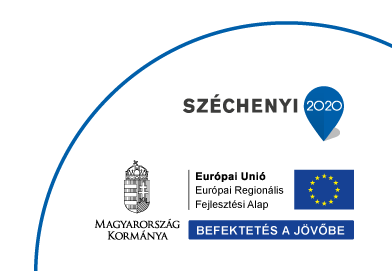

The SEED Small Business Development Foundation, as the implementer of the personal mentoring sub-project, aims to achieve the competitiveness, efficiency and growth of businesses by focusing on four target groups within the framework of the National Entrepreneurial Mentoring Program.
During the mentoring period – 6-12 months – the mentored business/entrepreneur can benefit from free mentoring by the mentor of their choice and 25 hours of specialised advice.
The aim of the programme is to spread mentoring nationwide, to increase entrepreneurial awareness and cooperation, thereby reducing the competitive disadvantages caused by gaps in entrepreneurs’ knowledge, experience and competences.
You will have the opportunity to revise your business idea (your current business and potential opportunities) from a different perspective,
You can learn from the difficulties your mentor has faced, the challenges he or she has already overcome,
You can be helped to organise your own thoughts in a focused way, prepare decisions by developing several alternatives,
You will learn tools in practice that you may have already learnt about in school or on a course, but it was not taught how to use them (and how not to use them) in a “real combat situation”, e.g. strategic-business planning toolkit, modern marketing tools, business networking, customer and process approach,
Your mentor will help you to broaden your horizons and find a new perspective through their own experiences and contacts.
01 Young entrepreneurs
02 Women businesses
03 Family businesses facing generational change
04 Re-planning enterprises

Priority project GINOP-1.1.2-VEKOP-17-2018-00001 “Increasing the efficiency of the SME sector by improving financial knowledge and providing entrepreneurial mentoring”
Personal Entrepreneurship Mentoring sub-project
CALL FOR APPLICATIONS
Who can apply for the program and how?
Basic criteria system of mentees
The program aims to support the growth of business competitiveness through personal entrepreneurial mentoring, focusing on four target groups.
The four target groups are women, young family businesses affected by generational change, reorganized enterprises as well as businesses whose viability is being shaken by the economic impact of the COVID 19 epidemic.
1. Young Entrepreneurs: micro, small and medium-sized enterprises operating under the Mentoring Program with the participation of young entrepreneurs, where at least 51% of the shares of the already registered enterprise are owned by a person(s) under 35 years of age, and the managing director is under 35 years of age, as well as self-employed young people being also under 35 years.
In case of target group consisting of young entrepreneurs, one person from each of the young entrepreneurs’ partnerships and, in case of self-employed entrepreneurs, the self-employed entrepreneur himself may participate in the Mentoring Program.
2. Women entrepreneurs: under the Mentoring Program, women-owned micro, small and medium-sized enterprises, where at least 51% of the shares of the enterprise are owned by women and the managing director is also a woman, as well as women self-employed.
One person from each women’s business partnership and, in the case of a self-employed entrepreneurs, the self-employed persons themselves can participate in the Mentoring Program.
3. Family businesses facing generational change: micro, small and medium-sized enterprises under the Mentor Program that consider themselves as such or at least 51% of the business are family-owned, moreover who are also meeting at least one of the following three criteria:
1. Replanning businesses: SMEs whose viability is shaken by the economic impact of COVID-19
Under the Mentoring Program, micro, small and medium-sized enterprises whose viability has been shaken by a decline of more than 20% in revenue, number of customers or number of employees in the period from the start of the epidemic (11.03.2020) compared to the same period of the previous year, or the changed circumstances have fundamentally shaken the continuity of the activity.
Mentors’ basic criteria system
The mentoring tasks under this programme are open to individuals who meet the following criteria:
Application and selection process
Mentors and mentees can apply online at www.vallalkozztudatosan.hu.
Once the basic application criteria have been verified, the SEED Foundation will start the personal selection process of both mentors and mentees involving personal interviews and filling an online questionnaire.
The aim of the selection process is to provide decision-makers with sufficient data and information in order to ensure that the mentoring program may select candidates from both mentor and mentees side who are deemed suitable on the basis of measurable competences in line with the motivations expected.
Completing the application form provides an opportunity for those who have met the basic criteria to move on, ie to introduce themselves.
For the mentees – women and young entrepreneurs – the introductions will be used to decide whether the candidate on the basis of
is suitable to move on to a personal interview in the evaluation process and become part of a successful mentoring program.
For the two target groups, competences are assessed such as:
In the interview, a discussion takes place along each competency during the presentation of an entrepreneurial situation. Here, the focus is on points/competences that were not identified during the application process and information can be obtained on behaviour, motivation or values, and the maturity of the business. This is also where clarifying questions on the subjective scales included in the motivation letter.
In the case of generation changers, the purpose of the interview is to get to know the situation and motivations of the generation changer, to deepen the questions asked in the motivation letter and the situation of the hand-over. By the end of the interview, it should be clear to the participating experts what the applicant entrepreneur is looking for help within the Mentoring Program and what the individual needs are. The aim of the interviews with the managers of family businesses in generational change is to identify the difficulties and changes in their life situation, to provide personal support and to map the stages of the handover process.
The preparation for the mapping of this information is done at the stage of filling in the application form along the following questions:
In case of women and young enterprises, the selection process will be successful for those enterprises whose life path/development needs/future vision/motivation axis shows signs and results proving that the enterprise has development potential in order to implement a successful and effective mentoring process, and through the mentoring process the business can achieve positive change and growth.
In case of intergenerational family businesses, successful admission to the program depends on the level of potential for change/transition in the maturity of the business, and hence the transferor’s current situation, and depending on this, with the active help and supportive presence of the mentoring program, to what extent the enterprise can take a new direction and new dynamism to promote generational change and to successfully implement it.
For the replanning target group, the interview aims to get to know the difficulties caused by the COVID-19 epidemic in the life of the enterprise as well as the steps planned to solve the problems. By the end of the interview, it should be clear to the participating experts what the applicant entrepreneur is looking for help with in the Mentoring Program and what the individual needs are. In case of replanning enterprises, the criterion for successful admission to the program is whether the enterprise, after an assessment of its current situation, is able and willing to continue its business with the active help and supportive presence of the mentoring program.
In selecting the right mentors, the focus is on clarifying the following areas:
Mentors are selected on the basis of the following general competence groups:
Beyond a successful entrepreneurial past, the strongest possible mentoring attitude – along the lines of the competences listed above – will ensure that the selected mentors are included into the program who are committed to mentoring, working carefully and diligently for the sake of the effective implementation of mentoring processes.
Once contracts are signed, selected mentors and mentees may register on GrowthWheel’s IT platform supporting the mentoring process.
Here, both the mentor and the mentee have the opportunity to create their own introduction page and portfolio. However, the same program is also used to monitor and administer the mentoring process.
Connecting mentors and mentees
Mentors and mentees participating in the programme meet face-to-face in mentoring clubs. The aim of these meetings is to allow mentor and mentee to get to know each other personally as well.
Entrepreneurial mentoring is based on volunteering. Participation in the mentoring process is voluntary on the part of both the mentor and the mentee, so it is professionally justified that the principle of voluntariness should also apply to the right to choose. At the events, mentors and mentees are free to establish contact, get to know each other and indicate which mentor/mentee they would like to cooperate with. After the programs, it is up to the mentee to choose the three mentors they would like to work with. The first ranked mentor will be invited by the SEED Foundation to take part in the mentoring process. In view of the principle of voluntariness, the mentor has the right to accept or decline the invitation. In case of refusal, the SEED Foundation will invite the second or third ranked mentor.
Mentoring process
Once the mentor-mentee pairs are formed, the mentoring process can be started. During the mentoring period of minimum 6 and maximum 12 months, meetings will take place on average 1-2 times per month, lasting between 1 and 4 hours. Mentoring is preferably provided in a face-to-face meeting, with Skype, telephone or other online contact are also possible where appropriate. The start date of the process is the date of the formation of the mentor-mentee pair and the date of its recording in the IT system supporting the process. It must be completed within a minimum of 6 months and a maximum of 12 months from that date.
The programme provides the possibility for the mentees to benefit from so-called special consultations to be offered by the mentor in 25 hours time-frame, up to a maximum of HUF 500,000. In addition, mentors and mentees will have the opportunity to participate in knowledge-sharing events and 30 mentor-mentee pairs will have the possibility to participate in professional trips abroad.
Processes are always monitored on the GrowthWheel online platform.
The work of the mentors is always supported by a team of supervisors, whose members monitor the process within a defined framework and provide assistance in moving forward if necessary.
Closing the mentoring process
The mentoring process is closed individually with the final meeting, the summary and evaluation of results and lessons learned, the administrative closure of the process in the IT system, the issuing of the certificate of public support as well as of the legal closure documents certifying the completion of the process.
vallalkozztudatosan.hu
+36702165700
mentorprogram@seed.hu